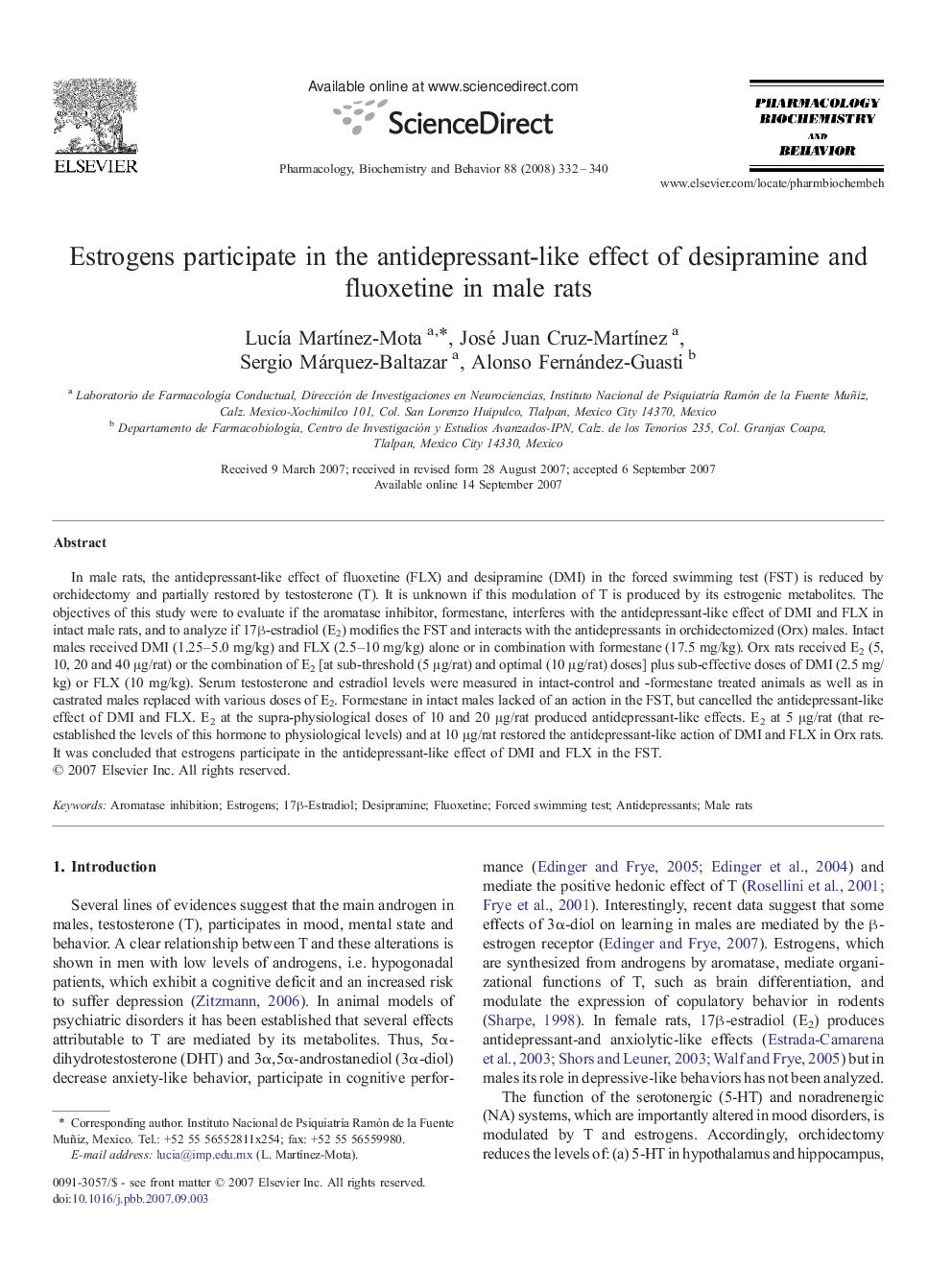| Article ID | Journal | Published Year | Pages | File Type |
|---|---|---|---|---|
| 2013650 | Pharmacology Biochemistry and Behavior | 2008 | 9 Pages |
Abstract
In male rats, the antidepressant-like effect of fluoxetine (FLX) and desipramine (DMI) in the forced swimming test (FST) is reduced by orchidectomy and partially restored by testosterone (T). It is unknown if this modulation of T is produced by its estrogenic metabolites. The objectives of this study were to evaluate if the aromatase inhibitor, formestane, interferes with the antidepressant-like effect of DMI and FLX in intact male rats, and to analyze if 17β-estradiol (E2) modifies the FST and interacts with the antidepressants in orchidectomized (Orx) males. Intact males received DMI (1.25-5.0 mg/kg) and FLX (2.5-10 mg/kg) alone or in combination with formestane (17.5 mg/kg). Orx rats received E2 (5, 10, 20 and 40 μg/rat) or the combination of E2 [at sub-threshold (5 μg/rat) and optimal (10 μg/rat) doses] plus sub-effective doses of DMI (2.5 mg/kg) or FLX (10 mg/kg). Serum testosterone and estradiol levels were measured in intact-control and -formestane treated animals as well as in castrated males replaced with various doses of E2. Formestane in intact males lacked of an action in the FST, but cancelled the antidepressant-like effect of DMI and FLX. E2 at the supra-physiological doses of 10 and 20 μg/rat produced antidepressant-like effects. E2 at 5 μg/rat (that re-established the levels of this hormone to physiological levels) and at 10 μg/rat restored the antidepressant-like action of DMI and FLX in Orx rats. It was concluded that estrogens participate in the antidepressant-like effect of DMI and FLX in the FST.
Keywords
Related Topics
Life Sciences
Biochemistry, Genetics and Molecular Biology
Biochemistry
Authors
LucÃa MartÃnez-Mota, José Juan Cruz-MartÃnez, Sergio Márquez-Baltazar, Alonso Fernández-Guasti,
